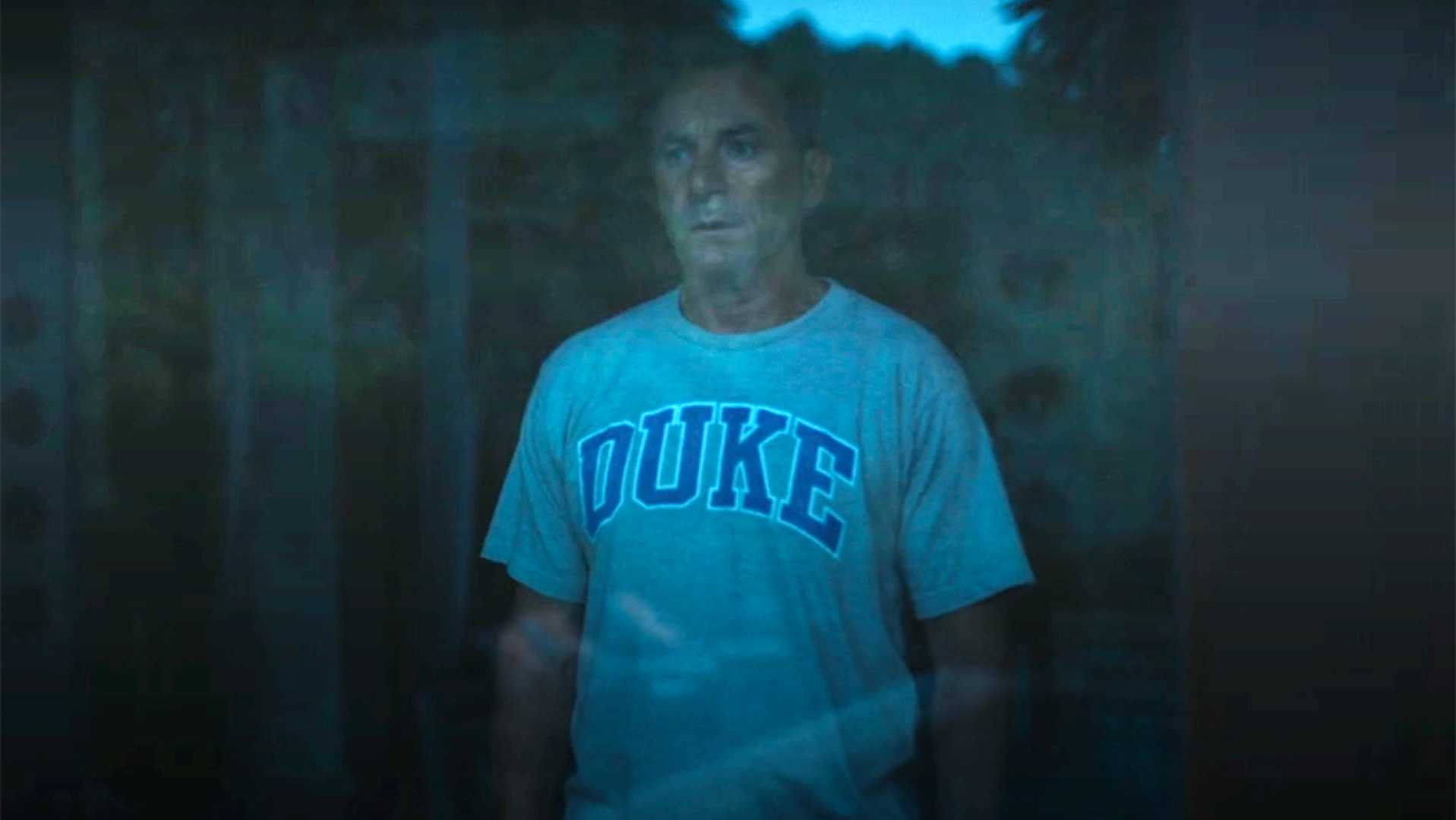Entertainment
Duke University Distances Itself from Controversial ‘The White Lotus’ Scene

Durham, North Carolina – Duke University is confronting backlash following its portrayal in HBO’s popular series, ‘The White Lotus,’ which raised concerns over unauthorized use of the university’s trademarks. The controversy centers around a pivotal scene from the show’s third season, in which character Timothy Ratliff, played by Jason Isaacs, considers suicide while donned in a Duke t-shirt.
The scene, aired on March 16, 2025, portrays Ratliff, a Duke alumnus, as embroiled in a money-laundering scheme, facing an FBI investigation that jeopardizes his family’s lavish lifestyle. This distressing moment has caught significant attention on social media, leading to widespread memes and critical discussions about mental health.
Frank Tramble, Duke’s vice president for communications, marketing, and public affairs, issued a statement expressing the university’s disapproval. ‘Duke University did not approve the use of its marks in The White Lotus,’ Tramble explained in an email. ‘While we appreciate artistic expression and storytelling, characters wearing apparel bearing our federally registered trademarks create confusion and suggest an endorsement or affiliation where none exists.’
Tramble emphasized the importance of mental health awareness, particularly highlighting that suicide is the second leading cause of death on college campuses. ‘As imagery from the show is being shared widely, we want to promote mental health awareness and remind people that help is available.’
The controversy emerges amidst excitement surrounding Duke’s basketball team, which is favored to contend for the NCAA national championship. This irony was noted on social media, with some suggesting that Ratliff’s troubling depiction could become an ‘all-time meme’ should the basketball team falter in the tournament. One tweet has garnered over three million views and significant engagement.
Alongside Isaacs, the cast features Patrick Schwarzenegger as Saxon, Ratliff’s eldest son, whose character engages in toxic behaviors that reflect poorly on the university. The portrayal of Saxon’s interactions, including disturbing encounters at the resort, has contributed to Duke’s unease regarding its representation in the series.
Tramble reaffirmed Duke’s desire to dissociate from the show’s narrative, stating, ‘Duke appreciates artistic expression, but the use of our brand in troubling imagery does not align with our values.’
While Duke officials express frustration over the portrayal, legal experts believe HBO’s usage may fall within acceptable bounds. Jeanne Fromer, an NYU law professor, noted that while trademark law protects brands from confusing uses, artists also hold strong First Amendment rights for expressive works. ‘Duke’s attempt to disassociate may draw more attention to the scene,’ she remarked.
David Olson, an associate professor at Boston College, echoed this insight, explaining that fictional portrayals enjoy significant legal leeway regarding trademark usage. ‘Trademark control does not extend to how others reference a brand, even in critical contexts.’
The unfolding scenario highlights the complexities institutions face when their branding is used in entertainment. As the current season of ‘The White Lotus’ nears its conclusion, Duke’s controversies with the show may linger, particularly as the Ratliff family’s challenges continue to unfold. Duke is leveraging this moment to advocate for mental health, utilizing its social media presence to emphasize support and resources available to those in need.
In light of ongoing discussions about mental health and media representations, Duke’s experience serves as a cautionary tale regarding branding, artistic freedom, and the ramifications of negative portrayals in popular culture.












